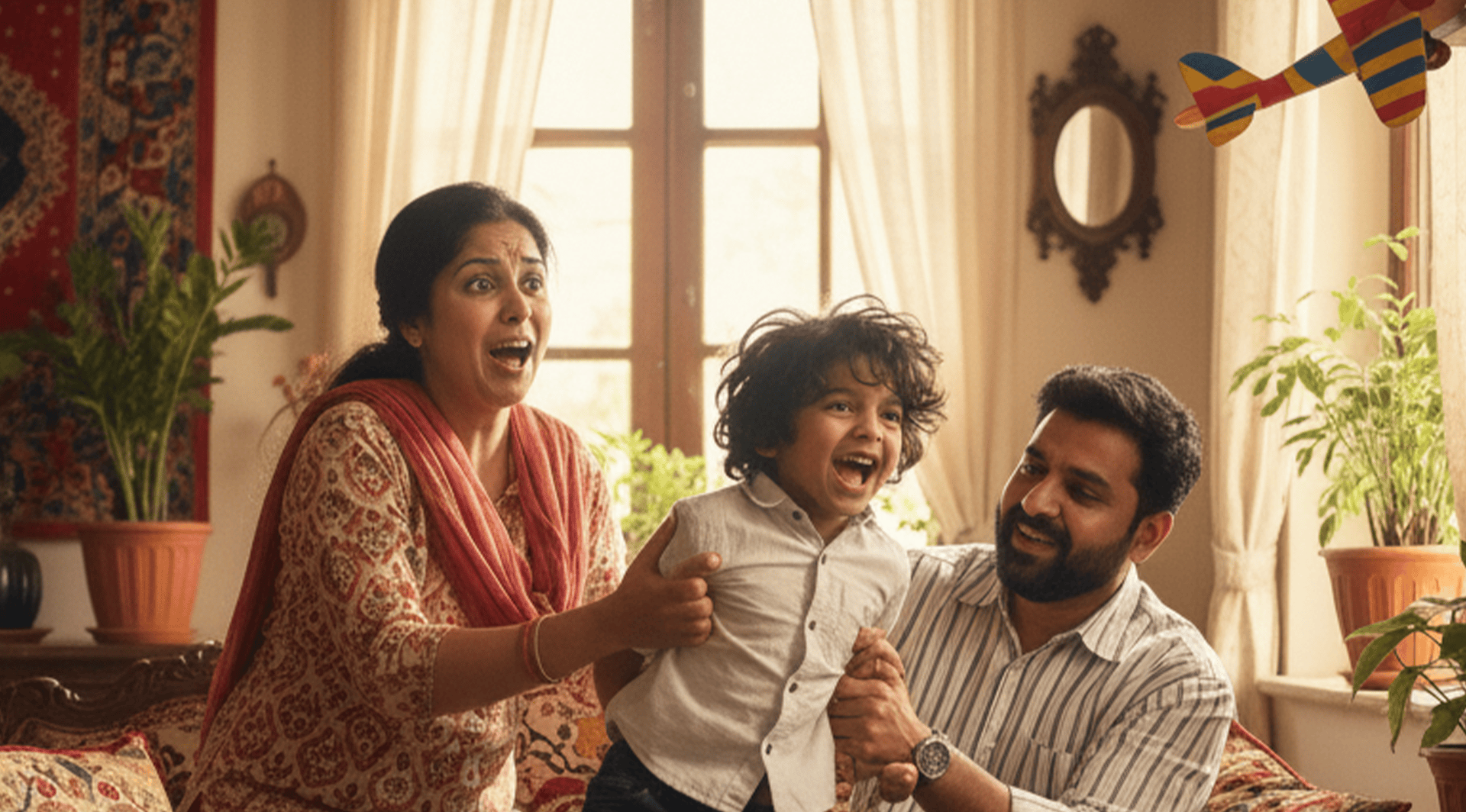Hyperactivity in children is often marked by restlessness, constant movement, difficulty focusing, and impulsive behavior. While some level of high energy is natural in kids, persistent hyperactivity can create challenges in learning, daily routines, and family life. The good news is that with consistent strategies at home, parents can help children channel their energy in positive directions and develop better self-control.
1. Establish a Consistent Routine
Children with hyperactivity benefit from structure. A predictable schedule for meals, study, play, and sleep reduces uncertainty and helps them feel secure.
- Example: Fix mealtimes and bedtime, so the child learns what comes next without constant reminders.
2. Break Tasks into Smaller Steps
Long instructions can overwhelm hyperactive children. Instead, divide activities into short, clear steps.
- Example: Instead of saying “Clean your room,” say “Put the toys in the box first.” After that’s done, give the next step.
3. Provide Regular Physical Activity
Hyperactive children need safe ways to use their energy. Daily exercise helps reduce restlessness and improves focus.
- Activities like cycling, skipping rope, dancing, playing outdoor games, or even yoga can be included.
- Avoid over-excitement close to bedtime, as it may disturb sleep.
4. Create a Calm Corner at Home
A quiet space helps children calm themselves when overwhelmed.
- Keep calming toys, soft cushions, coloring books, or puzzles in this corner.
- Teach the child that this space is for relaxation.
5. Manage Screen Time
Too much screen exposure can overstimulate children and worsen hyperactivity.
- Replace excessive phone or TV use with interactive play, board games, or story sessions.
- For older children, set clear screen-time rules and stick to them.
6. Use Positive Reinforcement
Children respond better to encouragement than constant criticism. Praise and rewards motivate them to repeat good behavior.
- Example: A sticker chart for completing homework or sitting quietly for 10 minutes can be effective.
- Focus on effort, not perfection.
7. Reduce Environmental Distractions
Children with hyperactivity find it harder to focus in noisy, cluttered, or overly stimulating spaces. A calm, organized environment makes it easier for them to complete tasks.
- Keep the study area free from TV, loud noises, or unnecessary toys.
- Use simple organizers or baskets so the child knows where things belong.
- During homework time, keep only the required books and stationery on the table.
8. Encourage Healthy Lifestyle Habits
- Nutrition: Avoid too much sugar and processed food, which may increase restlessness. Provide balanced meals with fruits, vegetables, and protein.
- Sleep: Ensure the child gets 8–10 hours of sleep. A fixed bedtime routine (bath, story, lights off) helps.
- Hydration: Dehydration can worsen irritability and concentration issues.
9. Handling Tantrums and Impulsive Behavior
Children with hyperactivity may get frustrated quickly. Parents should stay calm and model self-control.
- Distraction: If the child insists on buying something unnecessary during shopping, gently distract them with another task (e.g., “Can you help me find the apples?”).
- Choices: Offer limited options instead of saying “no” directly (e.g., “You can choose between a banana or an orange”).
- Consistency: Do not give in to tantrums every time, otherwise the child learns that crying or shouting gets results.
10. Encourage Social Interaction
Hyperactivity can sometimes isolate children from peers. Parents can provide safe, structured social opportunities.
- Playdates at home with one or two friends.
- Visiting relatives where children can practice greetings and small conversations.
- Local playgrounds or community events to practice sharing and waiting their turn.
Final Thoughts
Managing hyperactivity at home is not about “stopping” a child’s energy but channeling it into healthy and productive activities. With patience, consistency, and empathy, parents can support their child’s growth, reduce stress at home, and build skills that benefit them in school and beyond.
If hyperactivity is severe and affecting daily functioning, consulting a Pediatric Neurologist or a Clinical Psychologist for assessment and guidance is recommended.
This article is for educational purposes. For better accuracy, consult a Child psychologist or Autism Expert
Regards
Dr. Atul Madaan (Autism Expert)
MAAP, MBA, MPhil (Clin. Psy), PhD (Psy)
Operational Head & Clinical Psychologist- Care For Autism (CFA)
8383849217
www.autismspecialist.co.in
𝐂𝐀𝐑𝐄 𝐅𝐎𝐑 𝐀𝐔𝐓𝐈𝐒𝐌 (CFA)
One-of-a-Kind Assessment & Remedial Training Centre for Special-needs Children.
📌 Ludhiana : 114, Green Field, Kochar Market Road, Near National Lab, 9646443200
📌 Jalandhar : Hoshiarpur Road, Mubarkpur Shekhein Under Bridge, Near Railway Crossing, 9779725400
Looking for expert Autism treatment in Ludhiana and Jalandhar? At Care For Autism Dr. Atul Madaan and his team provide specialized therapies to support children with autism and developmental challenges. Our services include speech therapy, occupational therapy, child behavioral therapy, and ABA therapy for autism in a nurturing environment.
We offer psychological assessments, all type of remedial intervention. Our parent training programs empower parents and families with essential skills. If you’re searching for the best psychologist in Ludhiana, Jalandhar and Punjab, child speech therapy, or a child development center, we are here to help!
Visit our centres in Ludhiana and Jalandhar for autism therapy, parental training, and educational assessments. Give your child the best support with expert care.

Leave a Reply